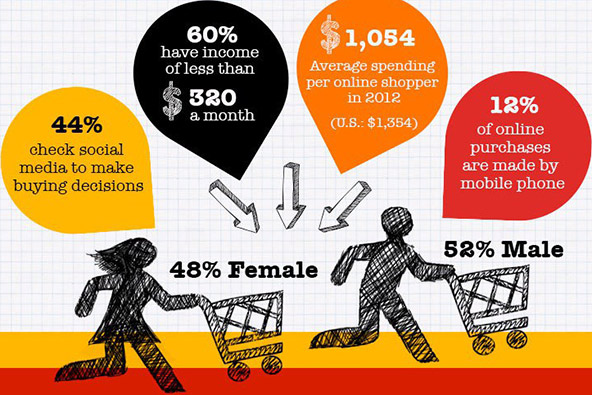Why Are Banks Charging New Debit Card Fees?

That is the question Sen. Durbin — the author of the eponymous amendment to last year’s sweeping financial reform bill that called for lower debit interchange fees – is asking of Wells Fargo’s CEO. Well, Sen. Durbin is of course only asking Wells Fargo to answer for its own fees, but the fact is that what prompted Wells to begin charging new debit-related fees is also what caused its rivals to do the same.
And if Sen. Durbin really wants to get an answer to his question — although I suspect he knows it perfectly well as it is — all he has to do is look in a mirror.
What Is Wells Fargo Doing?
As we reported back in August, Wells Fargo is testing in several states a $3 monthly fee charged to customers for using their debit and ATM cards. That fee is separate from any other monthly fees Wells customers may be paying for the checking accounts to which their cards are linked.
Wells was not the first big bank to introduce new debit card fees this year, nor is it the one that is facing the biggest backlash in response to them. In fact, Chase pioneered the practice as far back as last year in Wisconsin and Bank of America is dealing with a huge outcry over its own $5 debit card fee.
Yet, Sen. Durbin is writing to Wells Fargo.
Sen. Durbin’s Calculations
In his letter Sen. Durbin explains, correctly, how interchange fees are set and informs us, again correctly, what the average interchange fee was ($0.44 per transaction) before the Federal Reserve ruled to place a cap on it, which is now set at $0.22 per transaction plus 0.05% of the sale’s amount.
Sen. Durbin then proceeds to calculate the profit Wells Fargo made from collecting interchange fees on debit transactions in 2010, under the old interchange structure, and then estimates how much that total would have been if the new interchange structure had been in place back then. The numbers are $2,230,976,000 and $1,216,896,000, respectively. So, under the new rules, Wells’ revenue in 2010 would have been lower by slightly more than a billion dollars.
Then Sen. Durbin calculates that the cost to Wells to conduct debit card transactions ranges between $202,816,000 and $608,448,000 ($0.04 – $0.12 per transaction).
That much is uncontroversial. But what is Sen. Durbin’s point?
What Does Sen. Durbin Want?
Sen. Durbin concludes that:
This amount [$1.22 billion] far exceeds any reasonable measure of the cost to Wells Fargo of conducting debit transactions.
Now, what does that mean? Is Wells Fargo supposed to charge for its services only enough to cover its expenses? What about making profits for its shareholders? Well, profit seems to be a bad word in Sen. Durbin’s vocabulary:
Instead of making up costs, your new consumer fee appears to be a plain attempt to increase your profits — even though your bank just reported third quarter profits that hit a record high.
Profit is a bad word indeed. But what Sen. Durbin neglects to mention in his letter is that the interchange fee profits that Wells Fargo is looking for ways to make up for are not disappearing into thin air, nor are they being transferred to consumers. Far from it. The $7 billion or so (estimates vary, but this one is ours) in annual interchange fees that the new structure is costing issuers, are now being collected by retailers and most of it – by big-box stores (think Wal-Mart and Target). It is up to them alone to transfer any portion of the windfall to consumers. If you believe that this will happen, well, good for you.
The Takeaway
It is really unfortunate that a U.S. senator is wagging his finger at a business for attempting to increase its revenues, even as he acknowledges that there is nothing even remotely illegal in the bank’s actions and that “[i]t remains your [Wells Fargo’s] prerogative to set your own fees that you charge to your customers.”
The fact remains that banks only began testing the new debit fees when it became a real possibility that interchange rates will be slashed and their revenues will take a hit. As well they should have done so. No business should or can be expected to calmly accept a huge fall in revenues and make no effort to offset its losses.
Moreover, Sen. Durbin’s amendment did nothing to benefit consumers, whose interests it was supposed to serve. Instead, it mostly benefits huge retailers who are now eyeing an even bigger prize: a similar limit on credit card interchange.
For those of us who were paying attention, it was always clear what the consequences of the Durbin Amendment would be. I suspect its proponents were similarly well aware of the side effects of their actions. However, as it is unlikely that Sen. Durbin will accept any responsibility for the new debit card fees, he should at least stop bullying businesses for acting in their shareholders’ best interests.
Image credit: Wikimedia Commons.



I agree with your points. Durbin keeps making comments about “reasonable” profit when it’s not his decision to make. Consumers make decisions every day about how much they are willing to pay for things. Consider an example outside our industry. A new copy of Microsoft Office is priced at $279. Do you think it costs Microsoft $279 to burn that one CD for you? Of course not. http://www.clearent.com/blog-iso/industry-news/durbin-wants-to-have-it-both-ways-with-debit-card-processing/
Yes, the Microsoft Office example is a perfect one, as well as the Nike Jordan Retro basketball shoes one on your blog. As you say, Sen. Durbin wants to have it both ways: to impose a change on an industry and then not to allow it to adjust to the new environment. That cannot and will not happen, not in an open economy.
The cost of Microsoft Office does not only lie in the DVD or the packaging but in the countless hours that they paid engineers to design and produce the software.